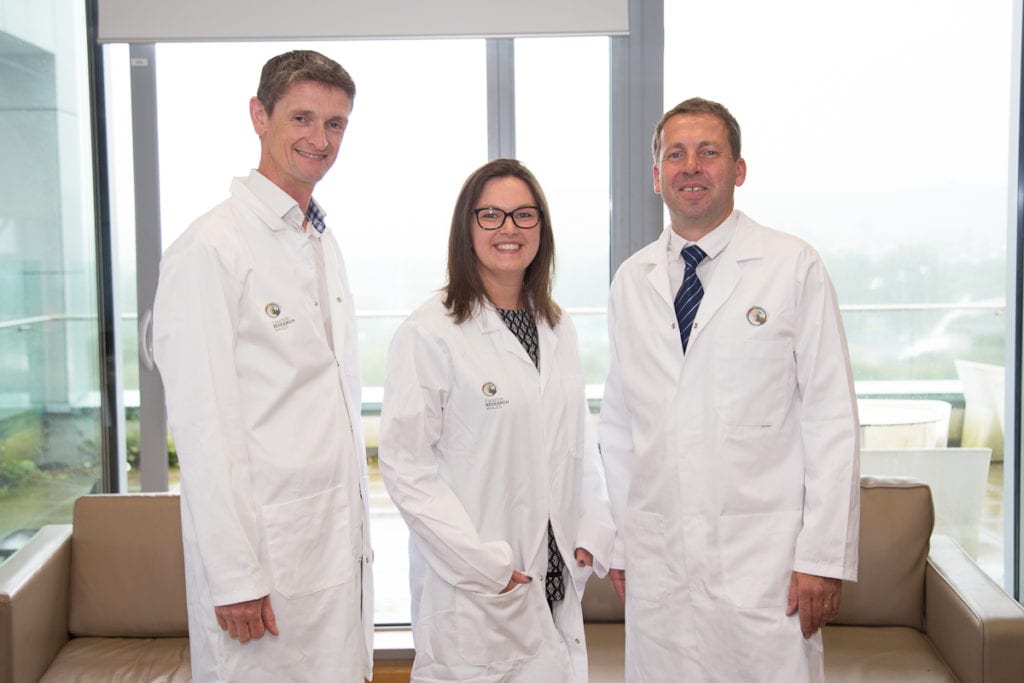A new made-in-Wales blood test has been developed to harness the power of artificial intelligence to detect the early signs of bowel cancer – a disease that affects over 260,000 people in the UK today.
Swansea University-spin out, CanSense, is working hard to save lives in Wales after spending seven years developing an affordable and accessible cancer test that can be performed at local GPs to avoid lives lost through delayed detection.
April marks Bowel Cancer Awareness Month, but unfortunately the UK is one of the worst performing nations for early diagnosis of cancer, with survival figures some of the poorest in Europe. Within the UK, Wales has the lowest early detection rates of bowel cancer – the second most common cause of cancer death behind lung cancer, with 2,200 cases diagnosed and 900 people dying from the disease every year.
However, if diagnosed early, bowel cancer is one of the few cancers that can be cured with early action and without the need for major surgery. The message is simple: If you are worried and think you might have symptoms, don’t ignore it and see your GP.
Bowel cancer detection typically includes a patient referral to hospital and ending in a colonoscopy. CanSense’s blood test eliminates the unnecessary colonoscopies for the many that fortunately don’t have bowel cancer, saving the NHS £250 million per year, which can help clear the bottleneck helping speed up the process for those at greatest risk.
The innovative blood test technology will also improve bowel cancer detection in young patients who are typically not seen as high risk and experience delayed referrals as a result.

Academics at CanSense have spent the last seven years developing an inexpensive bowel cancer blood test, which can be performed at local GPs. The test result is shared within 48 hours allowing the GP to make immediate and accurate decisions for their patients, enabling a quicker pathway to treatment and potentially saving the downstream late-stage oncology costs of £19,000 per person.
The developers believe that the need has never been greater for this type of test. Covid-19 has highlighted the necessity for accurate and affordable testing to relieve the pressure on traditional diagnostic services within the NHS, to ensure those with bowel cancer receive the treatment they need right away.
And with additional funding, progression towards adoption into mainstream primary care will only happen quicker and help decrease the backlog of patients waiting for referrals.
Commenting on the innovative technology, Adam Bryant, CEO and business founder of CanSense, said: “I think everyone in their life is impacted by cancer which has certainly motivated the team to develop this technology – to save lives through early detection, so others don’t have to experience late-stage diagnosis of friends or family.
“For over seven years, the team has been working on this technology that uses a combination of laser spectroscopy and artificial intelligence. Our blood test produces a spectral ‘fingerprint’ from which the patient’s cancer activity can be recognised by comparing it to our database of thousands of blood samples, telling us the level of cancer present in the blood and the urgency for treatment.”
The success in clinical trials has secured CanSense the support of the Welsh Government’s Accelerated Growth Programme (AGP), which supports high growth businesses in Wales, and grant support from Cancer Research Wales and Health and Care Research Wales.
In Wales, primary care practices in four health boards are working alongside CanSense on academic-led clinical trials, along with the Rapid Diagnostic Centres and Bowel Screening Wales. CanSense is also working with two English health boards, Leeds In Vitro Diagnostic co-operative and Wessex and Oxford AHSNs.
In addition to the company’s bowel cancer detection technology, with the aim of being ready for patient use in approximately 24 months, CanSense is also rapidly expanding its early detection blood testing platform to other cancer types, like pancreatic, breast and lung. The Welsh company plans to expand its test to many more cancer types with further trials and funding.
Adam said: “The CanSense team sees this as a real opportunity to alleviate patient concerns about invasive testing by developing more routine blood tests aimed at getting more people with any bowel concerns tested for early-stage cancer. Ultimately, we need to reduce the barriers that put patient lives at risk.”
Recently, the company has made it through to the final stage of the National Institute for Health Research AI Award, where if successful, CanSense will receive funding to accelerate adoption within NHS Wales.
Speaking about the company’s next steps, Adam said: “Translating ground-breaking academic research into a real-world test that can benefit everyone is always going to be dependent on funding and we’re looking for new investors to propel the test and help us continue to build the commercially viable platform. With continued collaboration with our academic partners within Swansea University we are preparing the test for approval of use within the NHS and eventual roll out to your GP surgery.”
